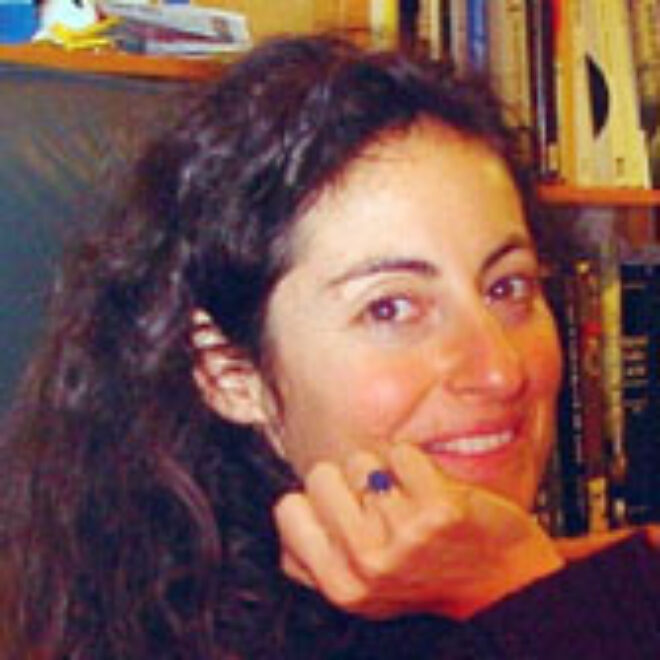Meet a Daphne Jackson Supervisor
Aviva Burnstock: Professor of Conservation at The Courtauld Institute of Art
Behind every successful Daphne Jackson Fellow is a research supervisor, helping guide a returner’s training and research programme.
Professor Burnstock is the supervisor for Dr Donatella Banti’s research into the analysis of paint deterioration in art conservation: “Micro-FTIR and Micro-Raman data analysis for the development of a protocol for mapping organic materials and their degradation products in 20th century paint samples: A case study on Franciszka Themerson’s material and techniques.”
Previously a lecturer in chemistry, Donatella attended the Courtauld during her career break, learning to be a practicing art conservator. When she was ready to return to research, she contacted her former professor at the Courtauld, Dr Burnstock, with a research proposal that would combine chemistry and conservation.
Together, they are working to uncover an art mystery.
“The project’s focused on the condition and making of modern art. We have access to 200 paintings with a particular problem – are the cracks in the paint intentional or deterioration? We have a unique opportunity to pursue this question using different sorts of evidence: archival evidence, artists materials, and the most sophisticated equipment we have.”
For Professor Burnstock, working with a Daphne Jackson Fellow has advantages in both the length of the fellowship and the focus on retraining.
“One of the great advantages of this fellowships is that it’s an extended fellowship. It gives us a chance to work together and develop a number of new skills, which is well-suited to a mature researcher. It means she’s at the cutting edge of our field and makes her very employable.”
Professor Burnstock has found supervising a Daphne Jackson Fellow to be a unique and rewarding experience.
“It’s fantastic working with someone coming back into the field and really updating skills – she’s two steps ahead. We have a collegial relationship with mutual understanding, as she’s someone who has had a professional career, understands how to learn new things, and is very committed to it. We’re good colleagues.”
Could you supervise a Daphne Jackson Fellow? Find out what’s involved in supervising here.
Related posts
Are you looking for an opportunity to return ...
Have you had a career break for family, caring or health reasons? Would you like to return to your research ...
Daphne Jackson Trust training courses are key to ...
A key element of the Daphne Jackson Fellowship is to help rebuild individuals' self-confidence, which can be lacking following a ...
Support the Daphne Jackson Trust in 2015
We rely on the generosity of sponsors and donors to support STEM professionals wishing to return to their careers with ...
Research carried out by Daphne Jackson Fellow identifies ...
Dr Frances Pearl, a Daphne Jackson Fellow 2011-2013, has analysed genetic data from 5000 cancerous tumours to identify potential new ...
Teresa Anderson MBE, to chair Daphne Jackson Trust’s ...
The Daphne Jackson Trust is delighted to announce that Dr Teresa Anderson, Director of the Jodrell Bank Discovery Centre, University ...
Interview with Daphne Jackson Fellow in The Biochemist ...
Dr Marjorie Gibbons is returning to research at the University of Bath with a Daphne Jackson Fellowship sponsored by the ...





